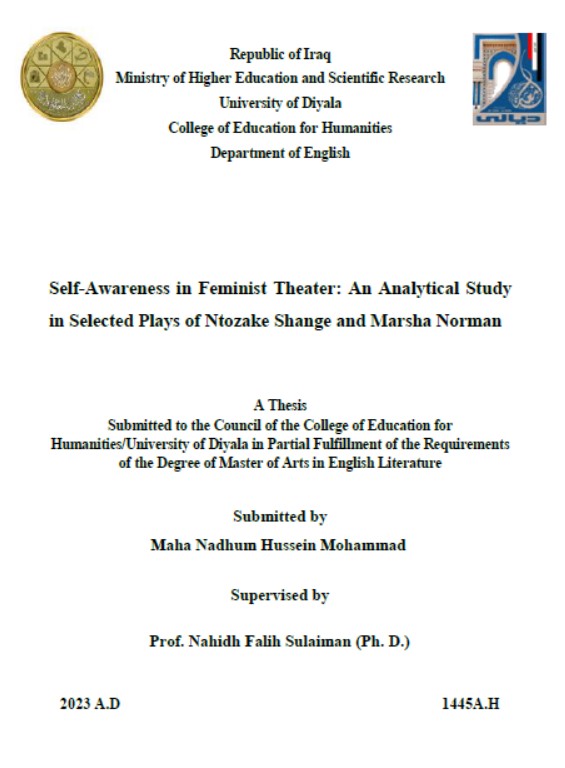Abstract
In postmodern theatre, female dramatists, including Ntozake Shange and Marsha Norman, adopted Self-Awareness as an individual and psychological cure of having freedom. Consequently, the female characters of that era rebelled against the degeneration of their surrounding in pursuit of autonomy. Thus, in many feminist plays of the1980s, the refusal of feminine roles, which are forced on females by males, is portrayed as one of the primary selections for women to get power. However, females’ conditions are so despairing that they are left with only the struggle and ways to obtain freedom, as seen in Marsha Norman and Ntozake Shange when they shed light on the theme of self-awareness in their plays.
By focusing on Shange’s and Marsh’s plays, this study aims to uncover neglected experiences of American women. On the one hand, a close examination of Ntozake Shange’s literature, notably her masterpiece For Colored Girls, demonstrates that the author’s outward desire to present American women in a neutral light is hampered by a hegemonic master narrative rooted in local patriarchal customs. As a result, it either the female subaltern by reducing her role or combines her with a status of gender inferiority by assigning her a role that conforms to her image in the patriarchal taxonomy and the social status of American women. On the other hand, Marsh Norman, who received the Pulitzer Prize for her debut play ‘Night, Mother’, is one of the most influential authors who speak up about women’s experiences in America.
This thesis consists of four chapters. The first chapter is divided into six sections. The first section is the introduction, which contains the problem statement, the aims of the study, the hypothesis of the study, and the methodology. An overview of the concept of self-awareness is presented in section two. While section three presents the theory of self-awareness and its pioneers. Feminist theatre is discussed in section four. Section five presents psychoanalytic Feminist theory as the leading theory to construct the thesis. And section six presents the literature review.
The second chapter discusses the life of Ntozake Shange and her play For Colored Girls (1975), presenting the rebellious ways that the characters follow to reconstruct their self-awareness. While the third chapter discusses the life of Marsha Norman and her play ‘Night, Mother’(1981), showing the characters’ search for self-realization through their journey. The fourth chapter is concerned with the conclusion of the study and some recommendations for further studies.




